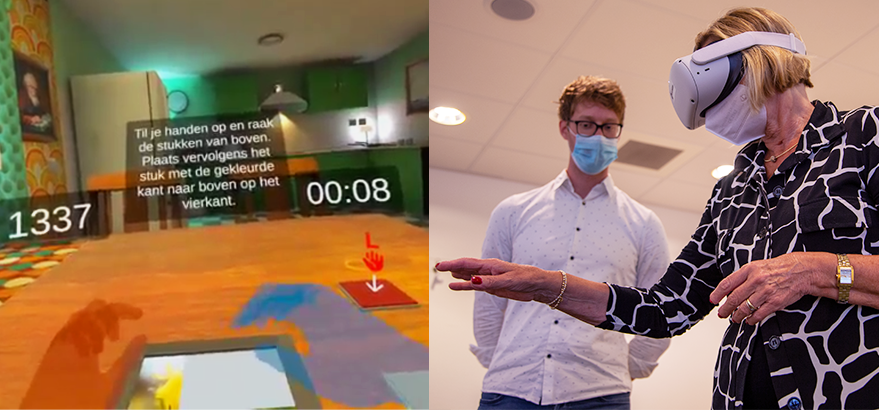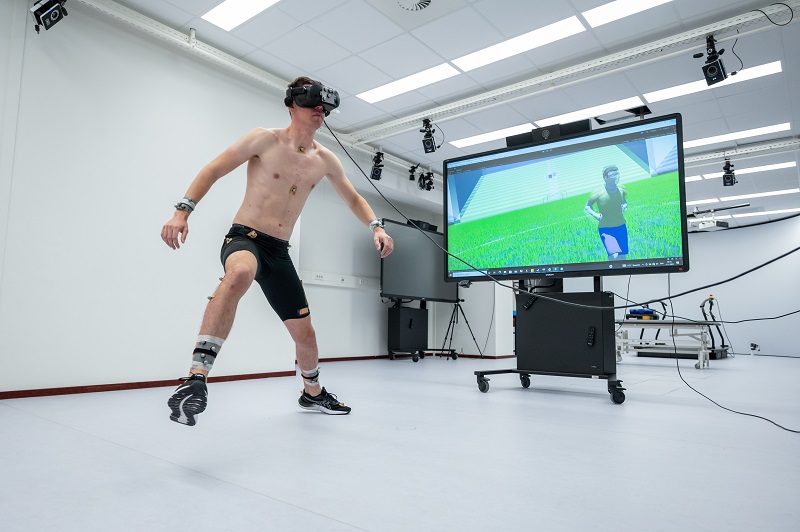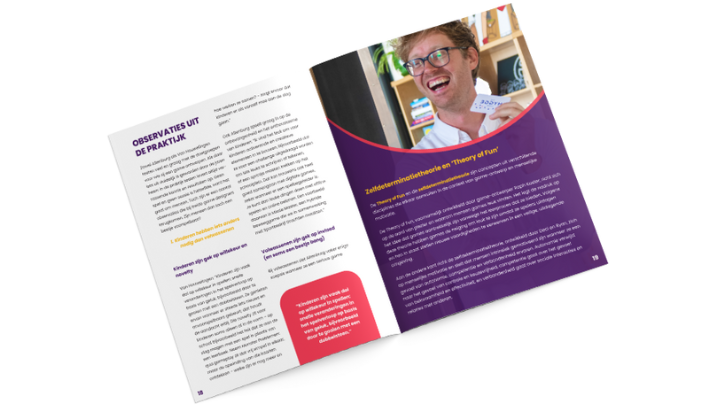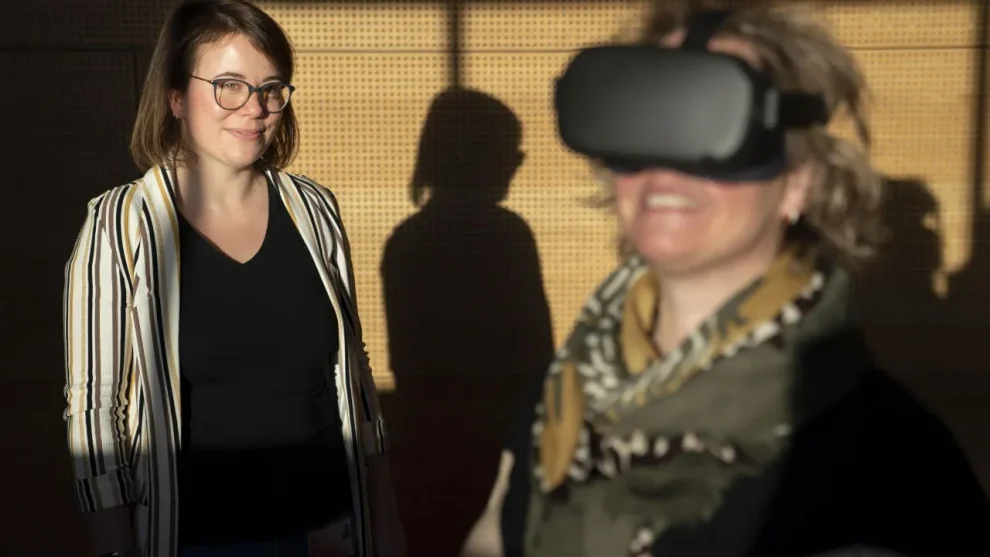Serious games for research
Serious Games as a Research Tool Games as a Method Serious games can contribute to scientific research in many different ways and at many different stages. Think of collecting quantitative…

So who are these people who build bridges between science, technology and social issues? That is what we will be asking a number of collaboration partners about in the near future. Lise Beumeler – PhD researcher at RuG Campus Fryslân – starts first. She is currently finalising her research at the Intensive Care (IC) ward of the Medical Centre Leeuwarden. Together with 8D, it developed a virtual reality game that helps ICU patients perform rehabilitation exercises. Beumeler: “The pandemic underlined for me that we do have to look at digital tools for care.
People who have undergone ICU admission are a vulnerable patient group. That makes it extra important to gear innovations closely to what they can handle, right from the start. Beumeler: ´We started very small. Together with a group of recovering ICU patients, we tried out a number of existing games, using different types of hardware that 8D had brought along. From Kinect to laptop and VR glasses. Soon, we noticed that participants went completely ‘wild’ especially with that VR experience. People were absorbed in the new experience and that seemed to have a beneficial effect on exercise behaviour.’

A surprising outcome, according to Beumeler: “Beforehand, there was concern that VR technology in particular would be perceived as too stressful. This proved incorrect; nobody got dizzy and people were mostly enthusiastic. However, as a result of the tests, we did choose to develop our prototype completely bespoke to simplify the user interface’s – ‘operation’ . We also decided to swap controllers for hand tracking with infrared technology. In doing so, you don’t have to hold anything in your hands; the movements are registered by the glasses themselves.’
A custom game prototype was then developed based on the test results. How does that work if technology or gaming is not necessarily within your area of expertise? Beumeler: ‘In such a process, everyone has to act primarily on the basis of their own expertise. You also have to trust each other in this. The bottlenecks and possible obstacles from the hospital; I can advise and inform on that, together with colleagues in the ICU and aftercare clinic. But diving completely into the hardware and technical possibilities, I have confidently left that to 8D. Because Johan and Giel got involved from the very beginning, the trust grew quickly’
In the VR prototype, the patient sits in a virtual, cosy living room. The challenge is to solve a jigsaw puzzle. To move the puzzle pieces, hands and arms are moved in the real world – exactly the way taught during rehabilitation. Beumeler: ‘There are four levels of play, which means that even patients with very low mobility can use the game. Even when they are currently still in the ICU. This is something that healthcare professionals were initially – quite understandably – a bit hesitant about; but now that the prototype is here and has been tested, they are excited to start using it in their work. ‘Recovering’ becomes ‘playing’ for a while and that is incredibly nice for the patient.’
There is no shortage of future plans: ‘With the current group of players, balance improved after playing; we want to investigate whether and how the game contributed to this by putting a control group next to it that does not use the VR glasses. Another ambition is to present the data generated during play in a more understandable way, so that the practitioner can see exactly what is or is not going well when moving the hands and arms.’
Is there anything she would have preferred to do differently in hindsight? ‘Not really, except perhaps that I would have liked to go in this direction earlier! Furthermore, an open mind is precisely what is needed for such research; if you are wrong, you have to accept that too. Genuine curiosity about what works for the patient and adjusting accordingly; that is important. And, of course, gathering people around you who feel the same way.
The research on rehabilitation using VR and gaming was co-funded by the MCL Innovation Fund. Besides Lise Beumeler, Mirthe de Vries (master’s student in Movement Sciences), Carina Bethlehem (MCL intensivist) and Johan van der Meulen (8D) were closely involved in the development. Read here more or listen to the podcast ‘Global Cast‘ where Lise, Johan en Mirthe were guests.
In addition to the research with Lise, we also looked at how gamification can help with theincrease of therapy adherence. This project focuses on the influence of game elements on therapy adherence. By increasing motivation and engagement, games can have a positive impact on therapy adherence.
At 8D, we support researchers in integrating a design approach into their work, from project design to creative product development and process supervision. These participatory methodologies help solve complex, people-centred problems and embed research findings in society in a sustainable way.

Don’t hesitate to get in touch

Serious Games as a Research Tool Games as a Method Serious games can contribute to scientific research in many different ways and at many different stages. Think of collecting quantitative…

What is the relationship between serious gaming, science and psychology? And why is serious gaming really much more than a game anyway? This white paper is not about games, but about serious gaming as a scientific method for researching (social) tasks!

Interested in the possibilities of serious gaming in healthcare and research, and want to know more about the process of doing PhD research in this field? On July 5, 2023,…